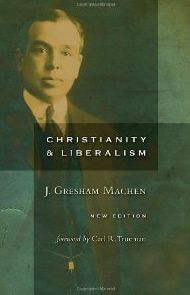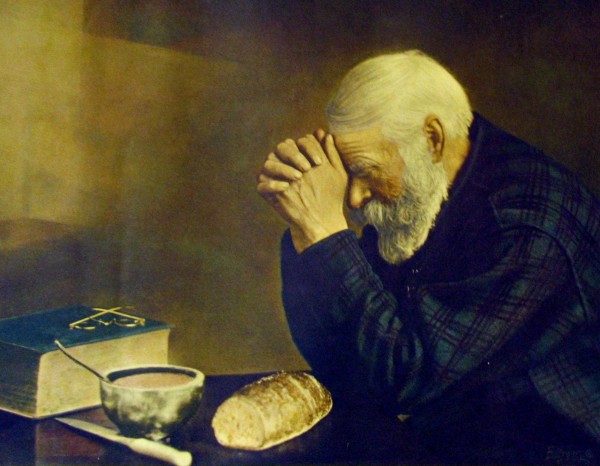 Good news! I finally have a copy of Christianity and Liberalism. It arrived Friday of last week by Purolator. Yes, for the first time in this round of Tim Challies’ Reading Classics Together, I read from an actual book.
Good news! I finally have a copy of Christianity and Liberalism. It arrived Friday of last week by Purolator. Yes, for the first time in this round of Tim Challies’ Reading Classics Together, I read from an actual book.
Last week’s reading discussed the doctrines of God and man, what Machen calls “the presuppositions of the [Christian] message,” showing that liberalism was diametrically opposed to true Christianity on these points. This week, Machen moves beyond Christianity’s two great presuppositions to the means by which we receive the message, the Bible.
“The Bible” says Machen, “contains an account of a revelation from God to man.”
[T]he revelation of which an account is contained in the Bible embraces not only a reaffirmation of eternal truths … but also a revelation which sets forth the meaning of an act of God.
What’s more, this account itself is true because the writers of the Bible were kept from error by the oversight of the Holy Spirit.
Modern liberalism, however, rejected the doctrine of an error-free Bible and claimed instead to accept the authority of Jesus alone. Yet that was not a true claim, because when it came to the words of Jesus, a typical liberal only accepted “those elements in the teaching of Jesus … which happen to agree with the modern program.”
It is not Jesus, then, who is the real authority, but the modern principle by which the selection within Jesus’ recorded teaching has been made. Certain isolated ethical principles of the Sermon on the Mount are accepted, not at all because they are teachings of Jesus, but because they agree with modern ideas.
And when you work that out, it all boils down to each individual’s experience being the final authority, and, when you boil that pan dry, you get no authority at all, “for individual experience is endlessly diverse, and when once truth is regarded only as that which works at any particular time, it ceases to be truth.”
To sum up: The foundation of true Christianity is the Bible; the foundation of modern liberalism is “the shifting emotions of sinful men.” Could they be any more different?
So far we’ve covered the presuppositions of Christianity (chapter 3) and the authority by which the Christian message is received (chapter 4). What comes next? It’s the message itself, starting with the person of Christ. See you next week for a summary of chapter 5.
 Friday, June 24, 2011 at 8:14PM
Friday, June 24, 2011 at 8:14PM 




